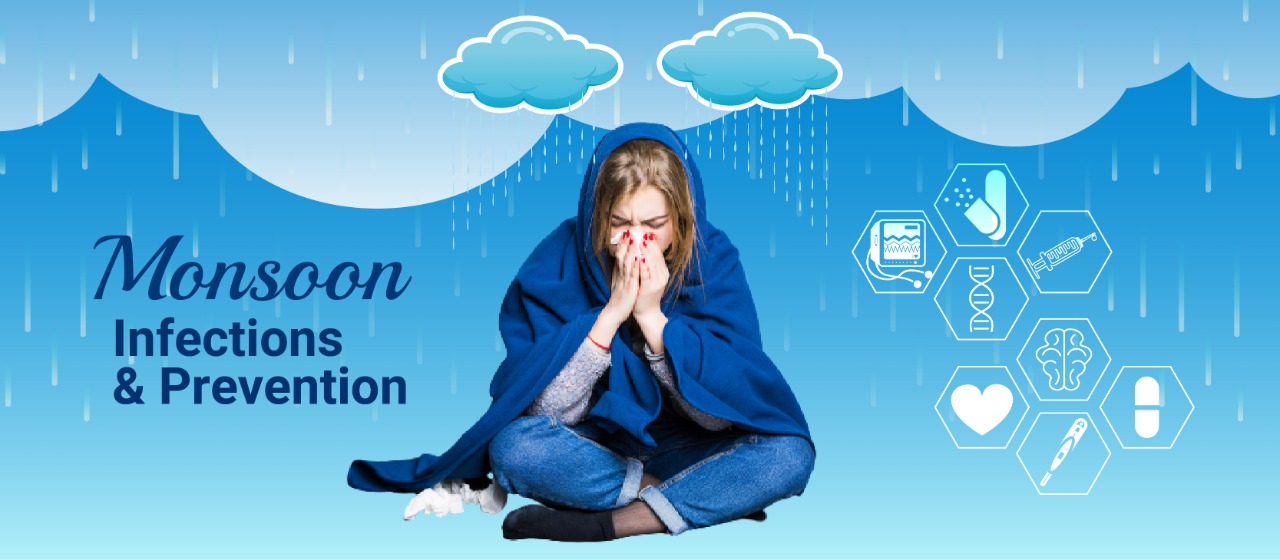A Unit of Asian Institute of Gastroenterology
Know All About Monsoon Infections And Their Prevention

Monsoons in India typically arrive at the end of June and last for about 2-3 months. Although rains bring about a refreshing feeling after the hot summers, they also carry a risk of multiple infections which can pose serious health threats to humans. An increase in moisture content and humidity during monsoon provides a more favorable environment for microorganisms to grow and multiply. Therefore, it is important for us to take necessary precautions to prevent these infections.
Types of monsoon infections
Mosquito-borne infections
Monsoon is a perfect season for mosquito breeding, and the most common diseases caused by mosquitos are malaria, dengue, and chikungunya. They typically spread through the bite of an infected mosquito, causing high fever, weakness, and body pains.
Water-borne infections
Typhoid and cholera are the most common water-borne diseases which spread through consumption of contaminated food/water, or poor sanitation.
Air-borne infections
The most common airborne infections are cold and flu causing fever, sore throat, cough, and body aches. These infections spread through the air when an infected person coughs/sneezes. Monsoons increase the risk of these infections as the microorganisms spread more easily in lower temperatures and high humidity.
Measures to prevent monsoon infections
Although monsoons bring a higher risk of infections, certain precautions can help you safeguard yourself from these infections. These include:
A healthy diet and exercise
Consume a well-balanced diet including immunity-boosting foods and drink sufficient amount of water to strengthen your immunity and prevent viral infections, which are more common in monsoons. Regular exercise also contributes to increase immunity.
Avoid eating street food
Consume only hot, freshly cooked meals and wash all fruits/vegetables thoroughly before eating. Avoid eating food outside and drinking water from sources other than sealed water bottles, as there is a higher risk of contamination and poor hygiene. Ensure that food is always covered, and not left in the open air.
Protect yourself from mosquitos
Use mosquito repellants and mosquito nets at home and ensure that there is no stagnation of water in and around your house. Maintain good personal hygiene and keep your washrooms cleaned at all times. Make it a point to wear fully covered clothes and use mosquito repellant creams when you step outside.
Avoid direct contact with people who have cold and flu
Maintain distance from people who are infected with cold and flu. If you are around someone with a known flu, ensure that your mouth and nose are covered, wash your hands frequently, and use separate towels and utensils.
Maintain appropriate personal hygiene
Ensure that you shower twice daily to get rid of the extra sweat and prevent infections from occurring due to the high humidity content during monsoons. Avoid wearing damp/wet clothes, and make sure that your clothes are regularly washed and dried in the sun or ironed before you wear them. This helps to prevent the growth of microorganisms.











